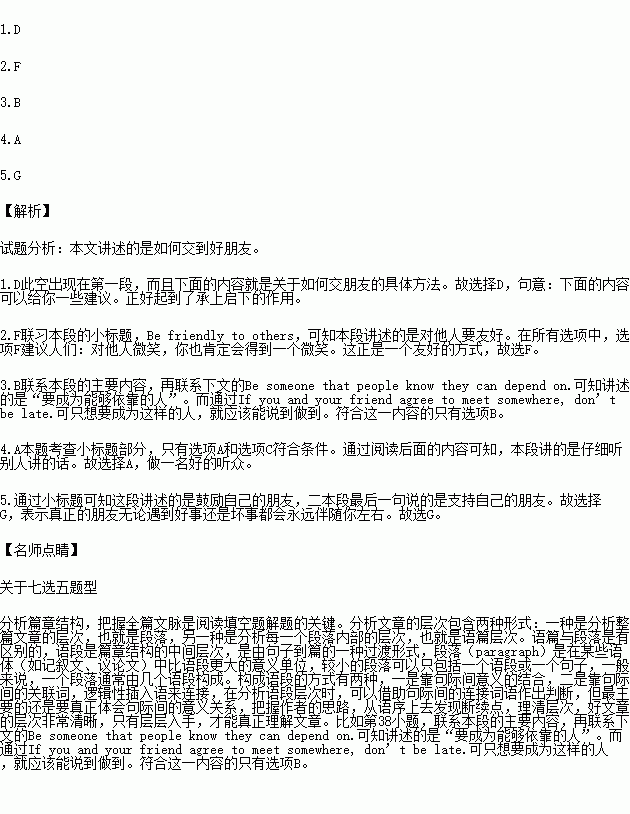题目内容
根据短文内容, 从短文后的选项中选出能填入空白处的最佳选项。选项中有两项为多余选项。
As we all know, friendship is of great importance in our daily life. A friend can give us help and share our difficulties and happiness. But how to make friends is still difficult to some of us. 1.
1. Be friendly to others. 2. . You should try to make a stranger feel at home wherever he happens to be. Think more of others than of yourself and never judge a person by his appearance and clothes.
2. Be reliable. If you and your friend agree to meet somewhere, don’t be late. If you’re not going to make it on time or make it at all, call them as soon as you realize it. 3. . Be someone that people know they can depend on.
3. 4. . Listen carefully to what people say, remember important details about them (their names, their likes and dislikes), ask questions about their interests, and just take the time to learn more about them.
4. Encourage your friends: A true friend always gives courage to his friends. 5. . Never make fun of or laugh at your friends in front of others. You should come to support them.
A. Be a good listener.
B. When you say you’ll do something, do it.
C. A friend to all is a friend to none.
D. The following information can give you some tips:
E. And never leave your friend when he is in trouble.
F. Smile at others and you are sure to get a smile in return.
G. He will remain with them in both good as well as bad times.


 lve your problems.
lve your problems. se in life, don’t lose faith and hope. Even if you lose all your money, family… you should still have faith. 4.
se in life, don’t lose faith and hope. Even if you lose all your money, family… you should still have faith. 4.
 kick with greatly effort and the ball went straight on into the goal. What amazing it was! She helped them win the game.
kick with greatly effort and the ball went straight on into the goal. What amazing it was! She helped them win the game.